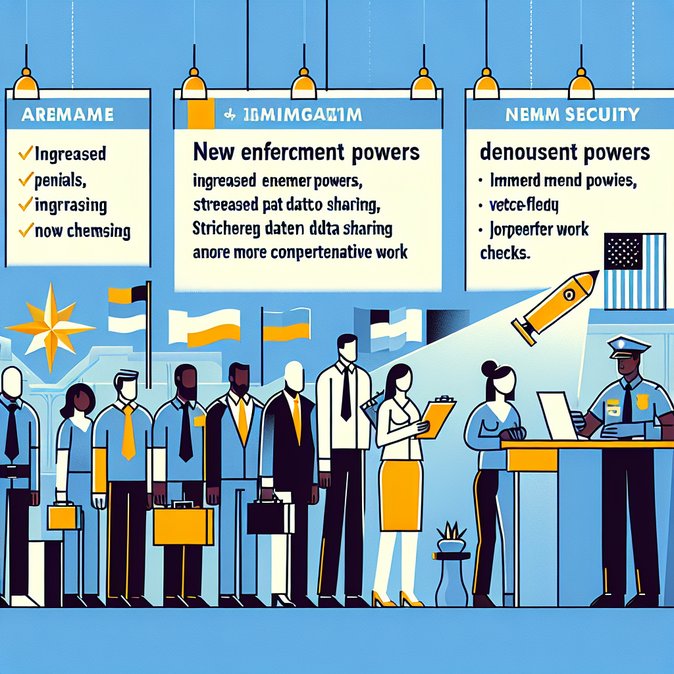
The House of Lords confirmed that the Border Security, Asylum and Immigration Bill will reach its fourth and likely final Report-stage sitting on 11 November, after three marathon sessions that ended on 5 November. Peers have already debated more than 250 amendments ranging from fast-track deportations and age-assessment methods to new data-collection duties on overseas students. The Bill—first introduced in June—bundles counter-terrorism powers with sweeping changes to asylum processing and irregular-migration enforcement.
If enacted, it would create a Border Security Commander reporting directly to the Home Secretary, embed counter-terror financing tools in immigration investigations, and widen the definition of “immigration crime” to include on-line facilitation of Channel crossings. Employers and landlords could see civil-penalty ceilings doubled to £40,000 for repeat breaches, while carriers that fail to collect Advance Passenger Information risk losing operating permits.
![House of Lords pushes Border Security, Asylum and Immigration Bill toward final vote]()
Human-rights campaigners warn that a proposed exemption from UK GDPR for data on people who entered “illegally” risks unchecked bulk data sharing. Universities are also lobbying against a late amendment that would tighten work-rights for international students. The Government argues that tougher deterrents are needed after irregular small-boat arrivals hit 43,000 in the year to June 2025.
For global-mobility managers, the Bill signals materially higher compliance risk in three areas: (1) right-to-work checks—especially for students transitioning to Skilled Worker visas; (2) carrier-liability audits, which could affect corporate shuttle services; and (3) data-protection governance, because employee-status data may fall outside normal GDPR safeguards. Multinationals should map current immigration workflows against the draft clauses now to prepare for implementation as early as Q2 2026.
The Report-stage timetable means the Lords could return the Bill to the Commons before Christmas. With the Government holding a comfortable majority, observers expect only minor concessions, setting the stage for Royal Assent in the first half of 2026.
If enacted, it would create a Border Security Commander reporting directly to the Home Secretary, embed counter-terror financing tools in immigration investigations, and widen the definition of “immigration crime” to include on-line facilitation of Channel crossings. Employers and landlords could see civil-penalty ceilings doubled to £40,000 for repeat breaches, while carriers that fail to collect Advance Passenger Information risk losing operating permits.

Human-rights campaigners warn that a proposed exemption from UK GDPR for data on people who entered “illegally” risks unchecked bulk data sharing. Universities are also lobbying against a late amendment that would tighten work-rights for international students. The Government argues that tougher deterrents are needed after irregular small-boat arrivals hit 43,000 in the year to June 2025.
For global-mobility managers, the Bill signals materially higher compliance risk in three areas: (1) right-to-work checks—especially for students transitioning to Skilled Worker visas; (2) carrier-liability audits, which could affect corporate shuttle services; and (3) data-protection governance, because employee-status data may fall outside normal GDPR safeguards. Multinationals should map current immigration workflows against the draft clauses now to prepare for implementation as early as Q2 2026.
The Report-stage timetable means the Lords could return the Bill to the Commons before Christmas. With the Government holding a comfortable majority, observers expect only minor concessions, setting the stage for Royal Assent in the first half of 2026.










